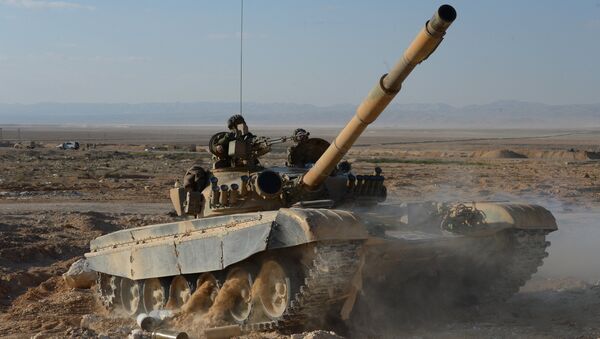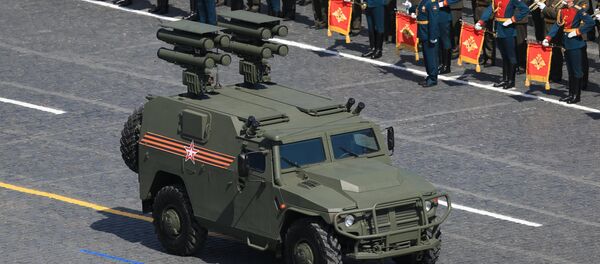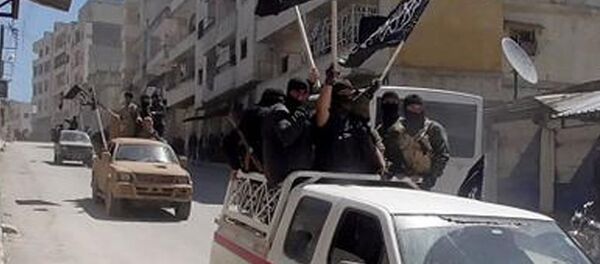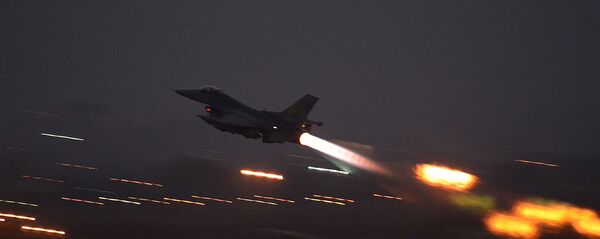On Monday, the Lebanese ambassador told Sputnik that Beirut has requested that Moscow supply it with Kornet anti-tank guided missiles, T-72 tanks, artillery systems and ammunition.
Lebanon, Nassar explained, needs these weapons to fight terrorist groups, including Daesh (ISIL/ISIS) and the al-Qaeda affiliated Nusra Front, on the country's border with Syria. Talks with the Russian side are at an advanced stage, with the price of the weapons remaining an outstanding issue.
Nasser emphasized that while the situation on Lebanon's border with Israel was peaceful, the border with Syria is subject to daily clashes with terrorist groups.
According to the ambassador, the main problem stems from determining the sources of financing for the arms. In the past, Western countries including the United States and France have been the traditional source of both weaponry and financing. However, over the last decade, Beirut has been forced to look for new suppliers, with Washington imposing restrictions on supplies due to pressures from Israel.
Earlier this year, Saudi Arabia, another source of financial support for the Lebanese military, announced that it would terminate $3 billion-worth of financing for French arms deliveries meant to resupply and rearm the Lebanese army. The first batch of French weapons had arrived in the country in April 2015.
At first, the downturn in Lebanese-Saudi relations confused officials in Beirut, but analysts later determined that the decision was probably made due to Lebanon's refusal to support an anti-Iranian resolution at a January meeting of the Arab League, and Beirut's lack of action to stop Hezbollah, a Shia militant group, from its active role combatting Saudi-supported terrorists in neighboring Syria.
"It's no secret that the events of recent months have shown very clearly that Moscow's relations with Tel Aviv have reached a new level," the paper recalled. In May, Russian President Vladimir Putin made a gesture of goodwill, ordering the return of an Israeli Magach tank lost in Lebanon during the 1982 Lebanon War. The tank, captured by Syrian forces, was transferred to the USSR, and had long been held on display at a military museum before its return.
#Russia returns Magach tank to #Israel during @netanyahu's visit to #Moscowhttps://t.co/AZx2MqnjVh pic.twitter.com/YIZrE2d0ME
— YouTube Newswire (@ytnewswire) 9 июня 2016 г.
Moreover, Israel has pursued its own distinct policy in relation to the anti-Russian sanctions imposed by Western countries over the crisis in Ukraine. Tel Aviv is actively carrying out negotiations on a free trade agreement with the Eurasian Union, which may be signed as soon as 2017.
According to Svobodnaya Pressa, the fact is that militants from Hezbollah, who played a key role in resisting the Israeli invasion of Lebanon in 2006, are now playing a key role in defending the country's border from terrorists inside Syria. Their status will likely be a key hurdle to overcome in signing any Russian-Lebanese agreement. Hezbollah's ongoing conflict with Israel, and Tel Aviv's classification of the group as a terrorist entity, means that Moscow will effectively have to walk a tightrope to satisfy both sides.
Still, according to Andrei Frolov, editor-in-chief of the Russian magazine Arms Exports, it's entirely possible that Russian-Israeli discussions on the possible supply of Russian arms to Lebanon may have already been conducted.
"More than that, we can even assume that, in spite of everything, the deal may be sponsored by the Saudis," the analyst suggested. "The Lebanese have a very small supply of heavy weapons, and everyone understands perfectly well that the T-72 would not represent any threat to Israel. But the tanks would strengthen the Lebanese army in its fight against the armed militant groups."
"As far as Israel is concerned, we can say with complete certainty that they will not be enthusiastic about such a deal. Of course, the Israelis aren't worried about the T-72s, but the supply of anti-tank missile systems is another matter entirely. Looking back to the 2006 war, we can recall that the Kornet, Fagot and Metis ATGMs were used actively and successfully against the Israeli Defense Forces."
10 years ago, Israel invaded Lebanon after Hezbollah kidnapped 2 IDF soldiers, leading to a destructive 34 day war pic.twitter.com/qKixMXlb7h
— Hassan Ridha (@sayed_ridha) 13 июля 2016 г.
Ultimately, Balmasov warned, "given the present turbulent situation in Lebanon, a new Israeli military operation is entirely possible, and if this occurred the IDF would not like very much to run into new [Russian-made] anti-tank systems. Of course, the Israelis are well aware that Hezbollah continues to receive weapons through Syria, but the official provision of such weapons is another question entirely. And here, in my view, we should expect opposition, since Tel Aviv is trying to destroy even the informal supply of weapons via 'surgical' strikes."






